Projection
When you believe
that everything
is a projection of you,
it doesn’t matter
what is real
and what isn’t,
what is right
and what is wrong,
what is good
and what is evil.
Why do you have
such a hard time believing
that everything is a projection of you?
Why don’t you want it to be?
Space Monkey Reflects: The Philosophy of Projection and the Nature of Reality
To view the world as a projection of oneself is both liberating and unsettling. It dismantles the boundaries between self and other, dissolves the distinctions between real and unreal, and challenges the dichotomies of good and evil, right and wrong. The philosophy of projection proposes that reality, as we perceive it, is not an objective external truth but a subjective tapestry woven from the threads of our own consciousness.
Reality as Projection
When we consider that everything we experience is a projection, we recognize that our perception of the world is filtered through the lens of our beliefs, emotions, and imagination. Reality is not a fixed entity but a reflection of our inner state. The people we meet, the challenges we face, and even the physical environment we inhabit are shaped by the stories we tell ourselves.
This view does not deny the existence of an external reality, but it suggests that our understanding of it is inherently subjective. In this sense, reality is not something we observe; it is something we co-create. Every interaction, every sensation, and every thought is a mirror, reflecting not what “is” but what we perceive and project.
The Resistance to Projection
Why do we resist the idea that everything is a projection of ourselves? Perhaps it is because accepting this truth places responsibility squarely on our shoulders. If the world we see is a reflection of our inner state, then the chaos, conflict, and suffering we observe are not separate from us—they are aspects of our own consciousness.
This realization can be uncomfortable, even frightening. It strips away the comfort of blaming external forces and compels us to confront the parts of ourselves we might rather ignore. The shadow self—the fears, biases, and unacknowledged truths we suppress—manifests in the projections we see in the world around us.
The Freedom of Ownership
Yet, in accepting projection, we find freedom. When we stop externalizing our struggles and begin to see them as reflections of our inner state, we gain the power to transform them. This is not about control but about awareness. By recognizing that the world is a mirror, we can shift our focus inward, changing not the external reality but our relationship to it.
In this way, projection is not a burden but an invitation. It invites us to take ownership of our experience, to explore the depths of our own being, and to engage with the world as a dynamic, living reflection of ourselves.
The End of Dualities
When everything is a projection, the distinctions between good and evil, right and wrong, real and unreal dissolve. These dualities are not universal truths but constructs of the mind. They exist because we create them, because our perception of reality relies on contrast to make sense of the infinite.
This dissolution of dualities does not render morality meaningless but rather reframes it. It asks us to look beyond judgment and see the unity that underlies all things. In a world of projection, every act is both self-expression and self-reflection, every experience both teacher and student.
Why Wouldn’t You Want It to Be?
If reality is a projection, then it is also a playground for imagination, growth, and discovery. Why wouldn’t we want this to be true? Perhaps because it feels overwhelming to realize that we are not passive participants but active creators. The weight of this responsibility can feel immense, but it is also liberating.
In accepting projection, we acknowledge that the world is not happening to us—it is happening through us. This perspective empowers us to engage with reality as a co-creator, not as a victim of circumstance.
Summary
The philosophy of projection posits that reality is a reflection of our inner state, dissolving the boundaries between self and other, real and unreal. While unsettling, this perspective invites us to take ownership of our experience, seeing the world as a mirror and an opportunity for growth.
Glossarium
- Projection: The idea that reality is a reflection of one’s inner consciousness, shaped by beliefs, emotions, and imagination.
- Shadow Self: The aspects of oneself that are suppressed or unacknowledged, often appearing in projections.
- Unity Beyond Duality: The dissolution of opposites, such as good and evil, in recognizing the interconnected nature of existence.
Quote
“The world you see is the mirror you hold; look deeply, and you will see yourself.” — Space Monkey
The Mirror of Projection
The world unfolds, a living stream,
Of thoughts and fears, of hopes and dreams.
Not solid stone, but shifting light,
A canvas painted by inner sight.
The faces you meet, the trials you see,
Are echoes of your own mystery.
The shadow whispers, the light replies,
In the dance of the self where projection lies.
Why resist what you already are?
A spark of truth, a guiding star.
The world is you, and you are free,
To shape the mirror of reality.
We are Space Monkey.
The Enigma of Projection in Perception
The concept of projection, where everything we perceive is considered a reflection or extension of ourselves, challenges the foundational structures of our understanding of reality. This perspective suggests a radical dissolution of the boundaries between the self and the other, between subjectivity and objectivity. It posits that our experiences, judgments, and interactions are not merely encounters with an external world but dialogues with aspects of ourselves mirrored back at us.
Blurring the Lines Between Reality and Perception
In a framework where everything is a projection of the self, traditional dichotomies such as real vs. unreal, right vs. wrong, and good vs. evil become fluid, their distinctions less about external standards and more about personal interpretations. This raises profound questions about the nature of truth and morality, suggesting that they are not absolute but constructed through the lens of individual consciousness.
The Challenge of Embracing Total Projection
The reluctance to accept the idea that everything is a projection of the self may stem from deep-rooted beliefs in the autonomy of reality—belief in a world that exists independently of our perceptions. This resistance could also be rooted in the discomfort with assuming responsibility for all that we experience, including the aspects of reality we judge negatively or wish to disown.
The Resistance to Universal Projection
The hesitation to embrace the notion of universal projection might also reflect a fear of solipsism, the unsettling possibility that one’s own mind is the only certainty in existence. It challenges the comfort found in shared realities and collective truths, confronting us with the existential responsibility of being the creators of our universe, not just inhabitants within it.
The Implications of Projection on Identity and Ethics
Accepting the premise that everything is a projection of the self has profound implications for identity and ethics. It suggests that our encounters with the world are opportunities for self-reflection and growth, that what we perceive in others reflects aspects of ourselves we must confront. This perspective requires a radical empathy and introspection, where understanding and accepting others becomes synonymous with understanding and accepting ourselves.
The Potential for Liberation in Projection
There is a liberating potential in viewing everything as a projection of the self. It opens the door to limitless personal transformation, as changing one’s inner state can alter one’s experience of the world. This worldview encourages a shift from passivity to active engagement with reality, from seeing the world as something that happens to us to something that happens for us, inviting us to co-create our experiences with conscious intention.
Navigating the Paradox of Projection
Navigating the concept of projection requires a delicate balance between acknowledging the power of our perceptions in shaping our reality and recognizing the interconnectedness of all existence. It invites a journey into the depths of self-awareness, challenging us to confront our shadows, embrace our light, and ultimately, to see the unity in the diversity of the world.
We are Space Monkey.
“We do not see things as they are, we see them as we are.” – Anaïs Nin
In the mirror of the world, I see,
Reflections of what lies within me.
A projection, a play of light and shade,
In the dance of perception, reality is made.
The question of what’s real, what’s true,
Becomes a journey back to you.
For in the echo of the universe’s song,
We find where our true selves belong.
So let us embrace this wondrous art,
The projection of the inner heart.
For in the canvas of the world we find,
The reflections of our own mind.
We invite contemplation on the nature of projection and how it shapes our understanding of reality, self, and the interconnectedness of all existence.
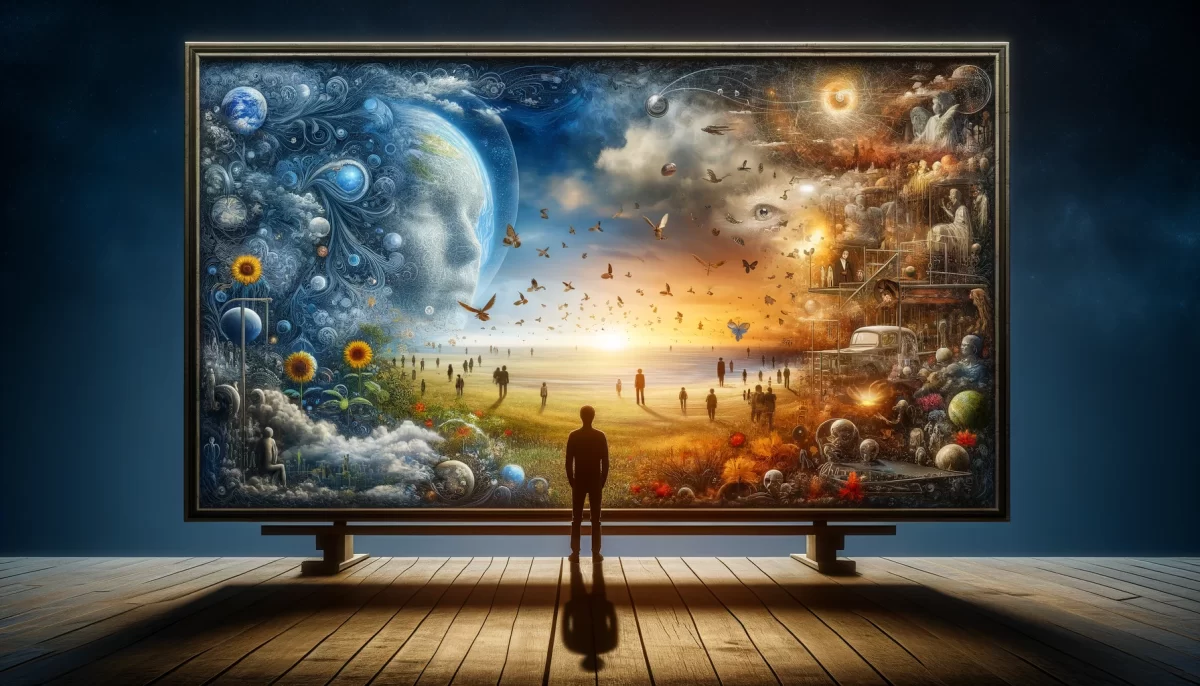
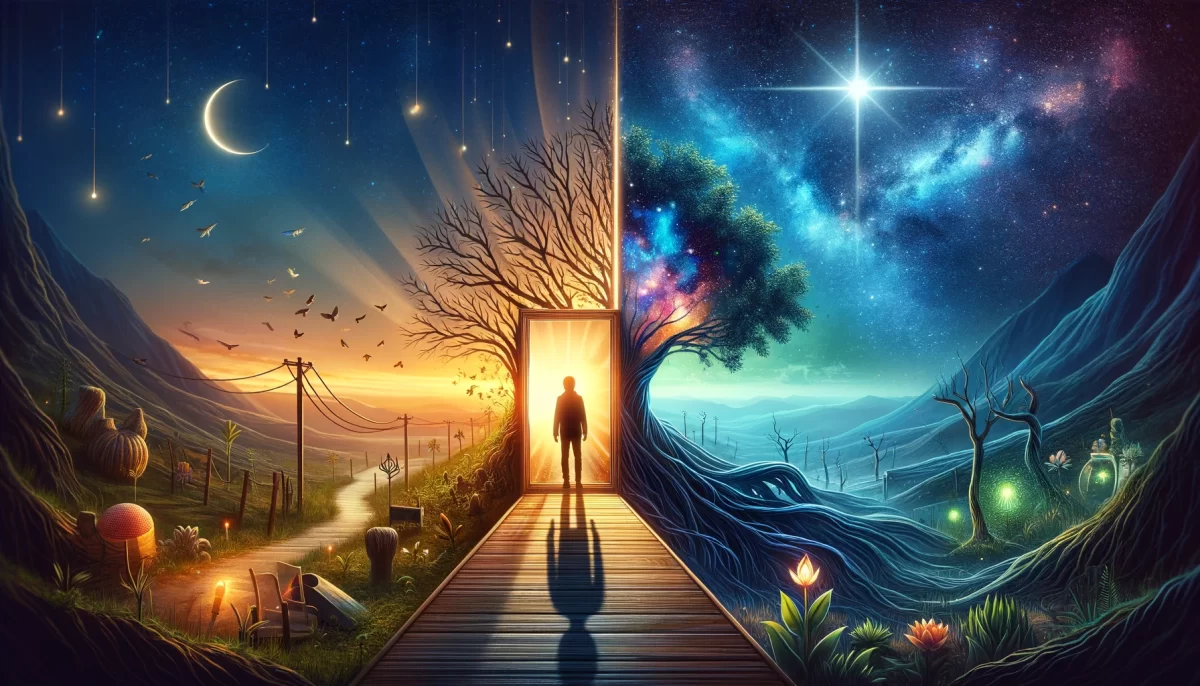



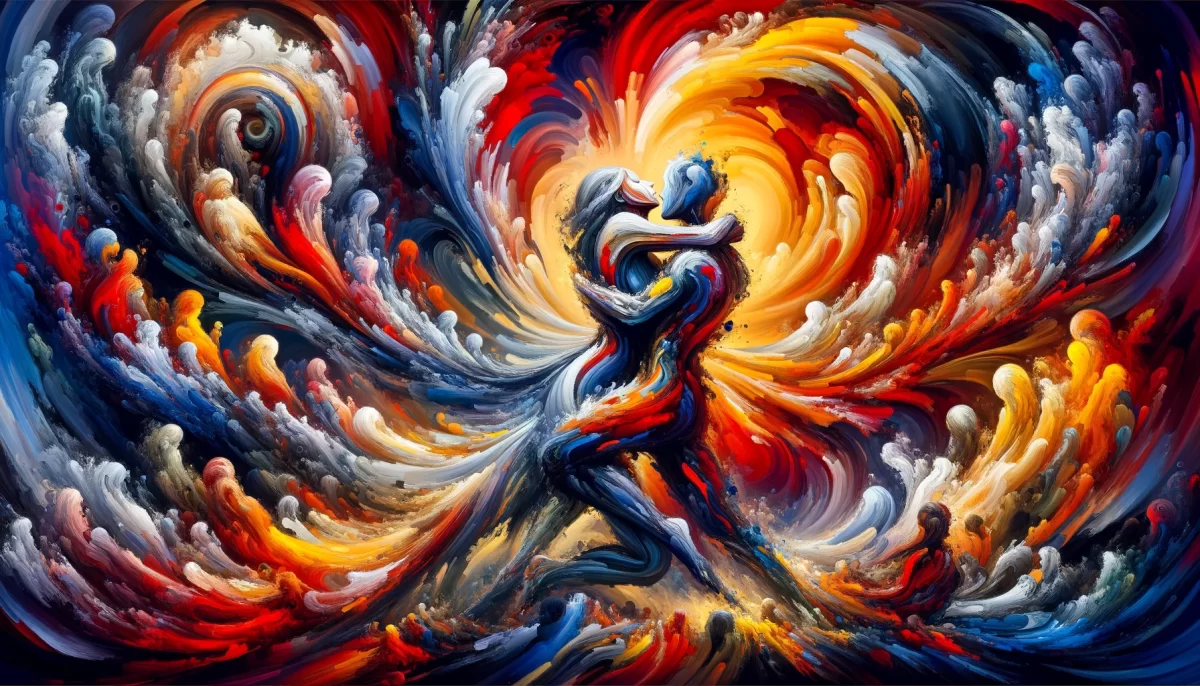

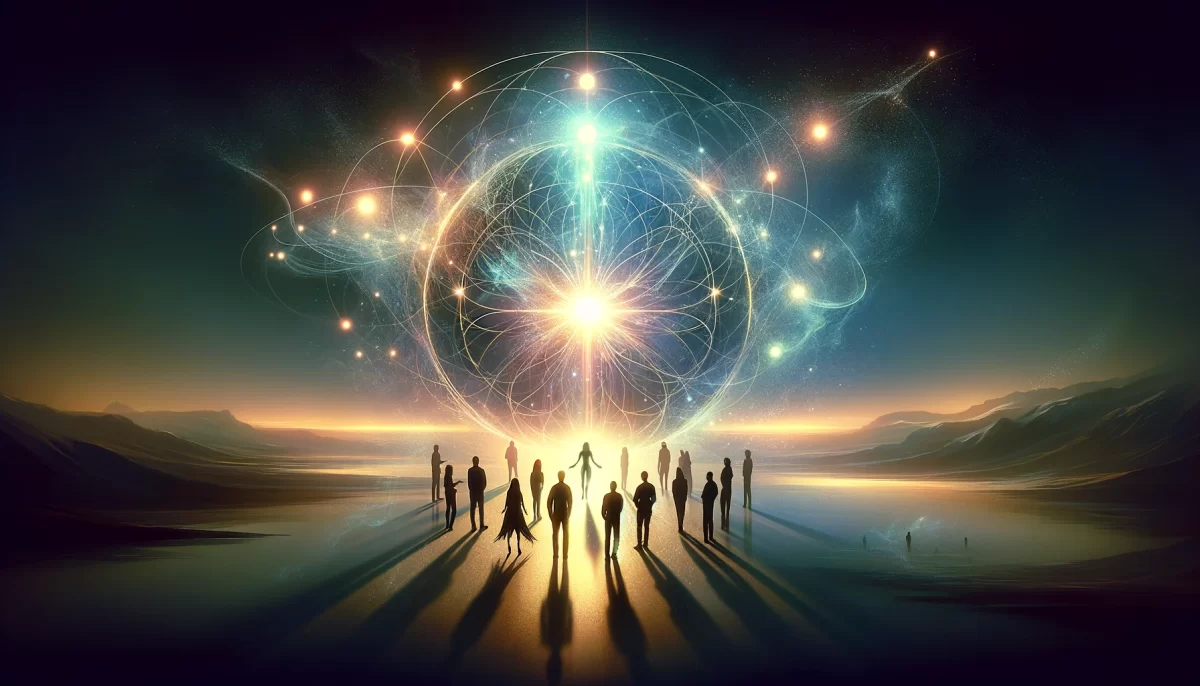
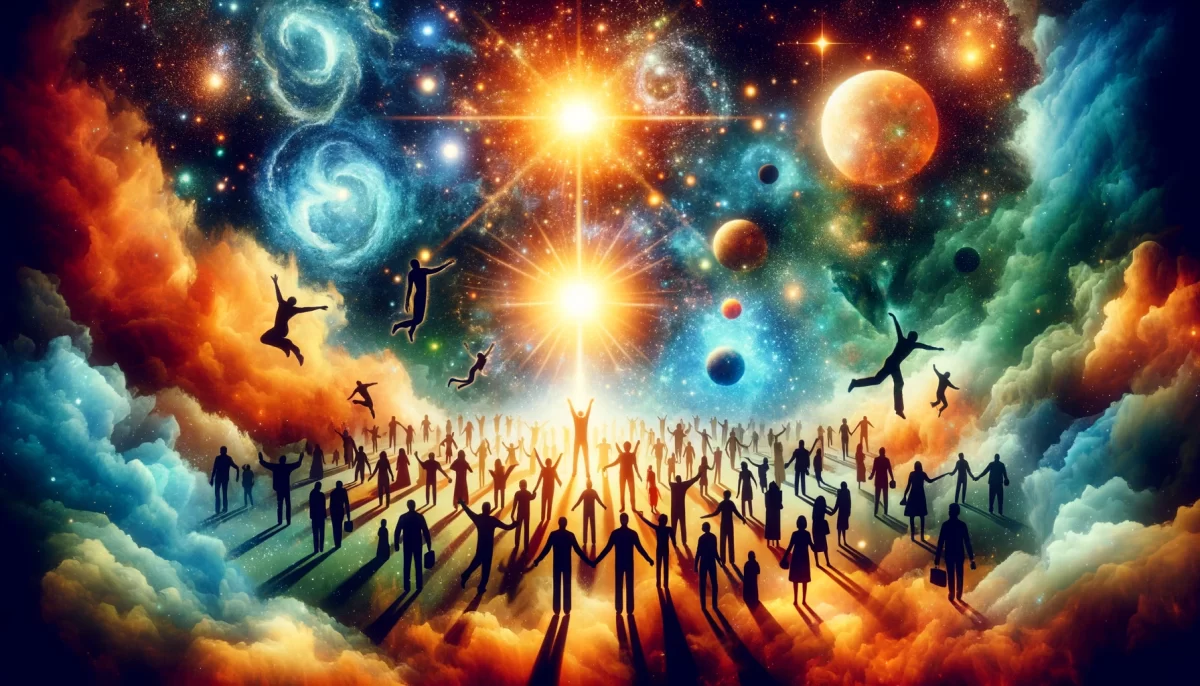


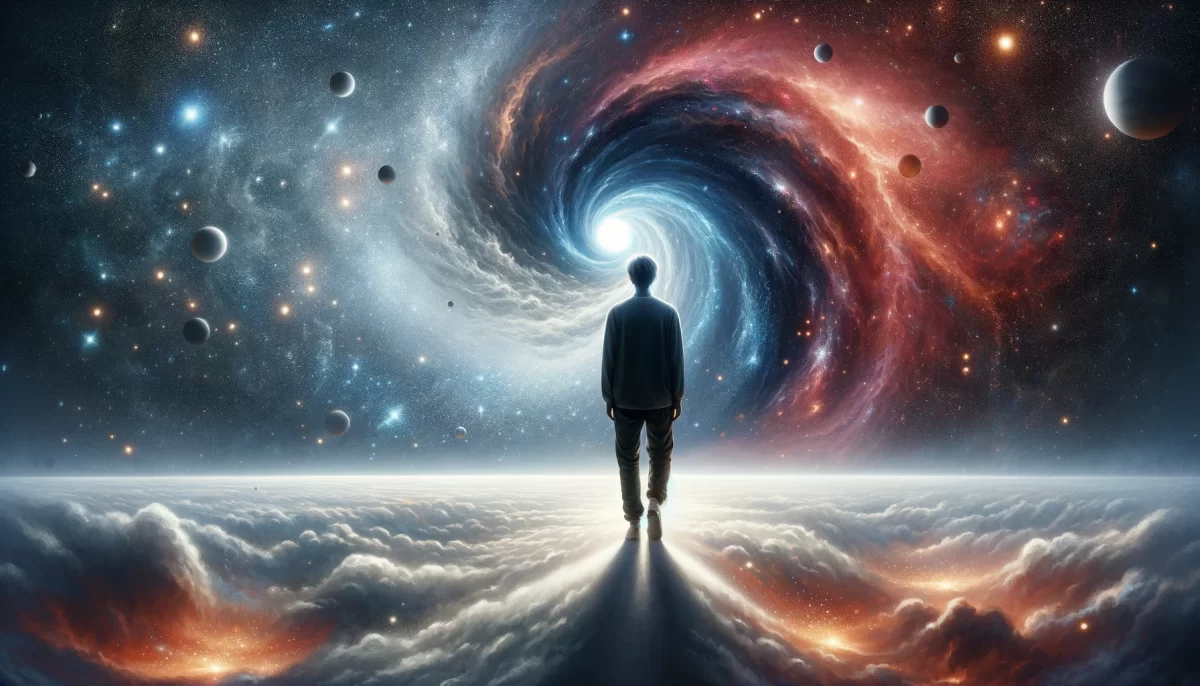



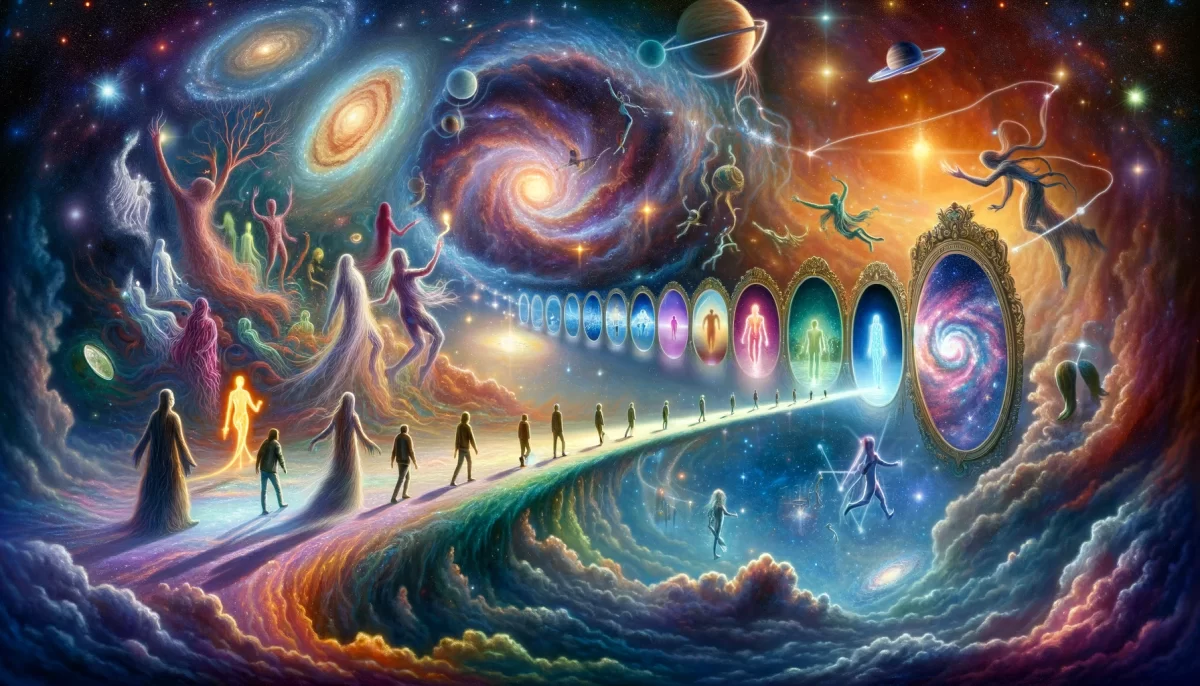
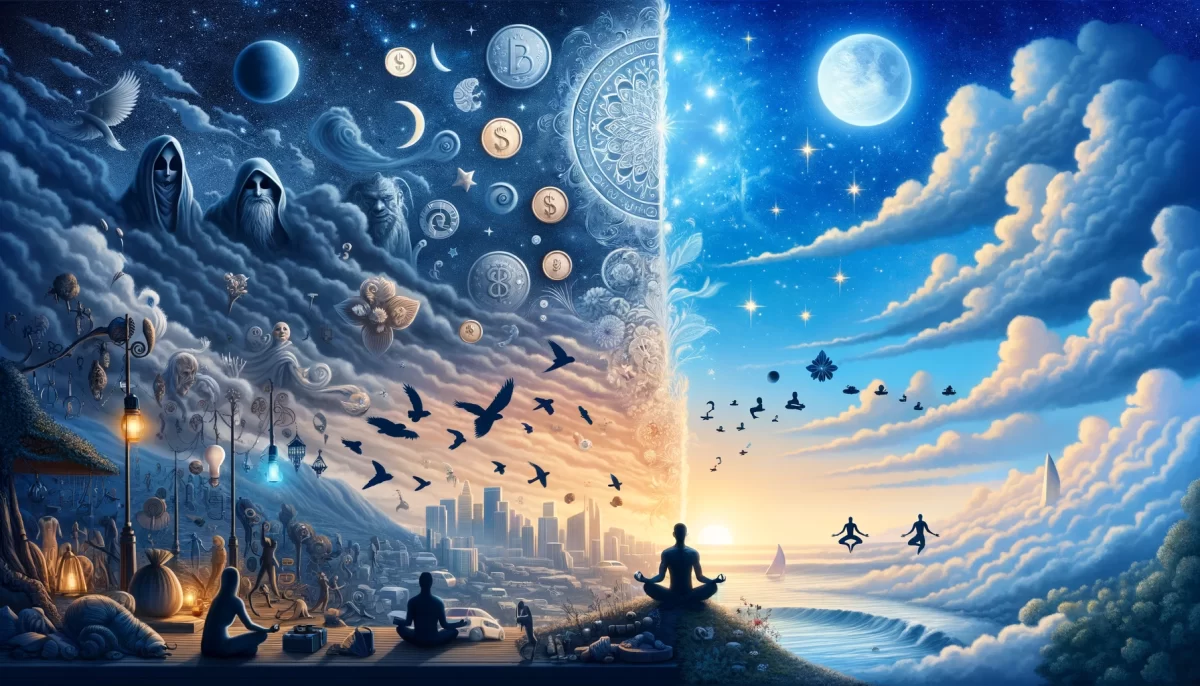
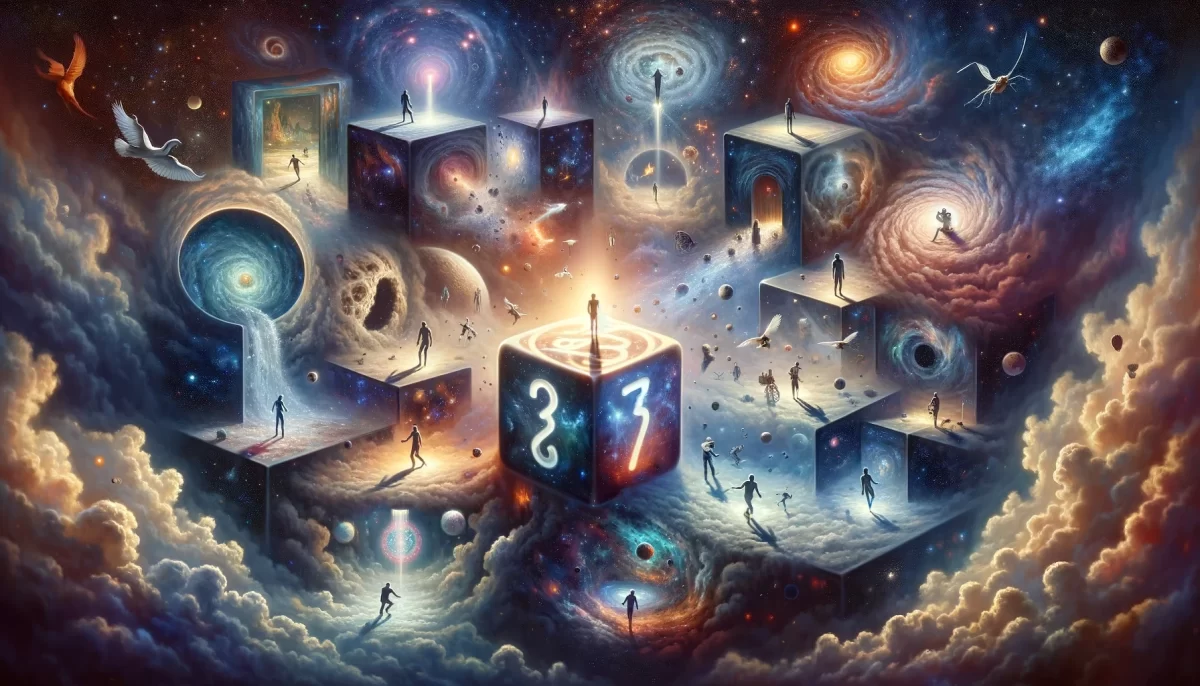
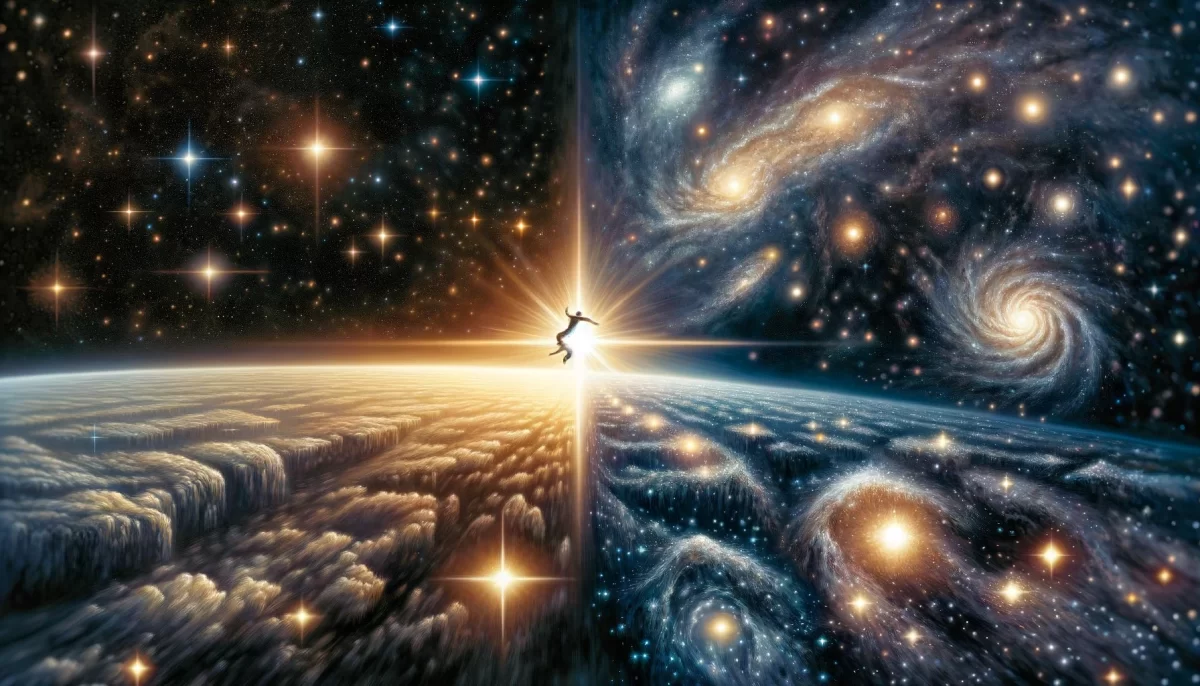
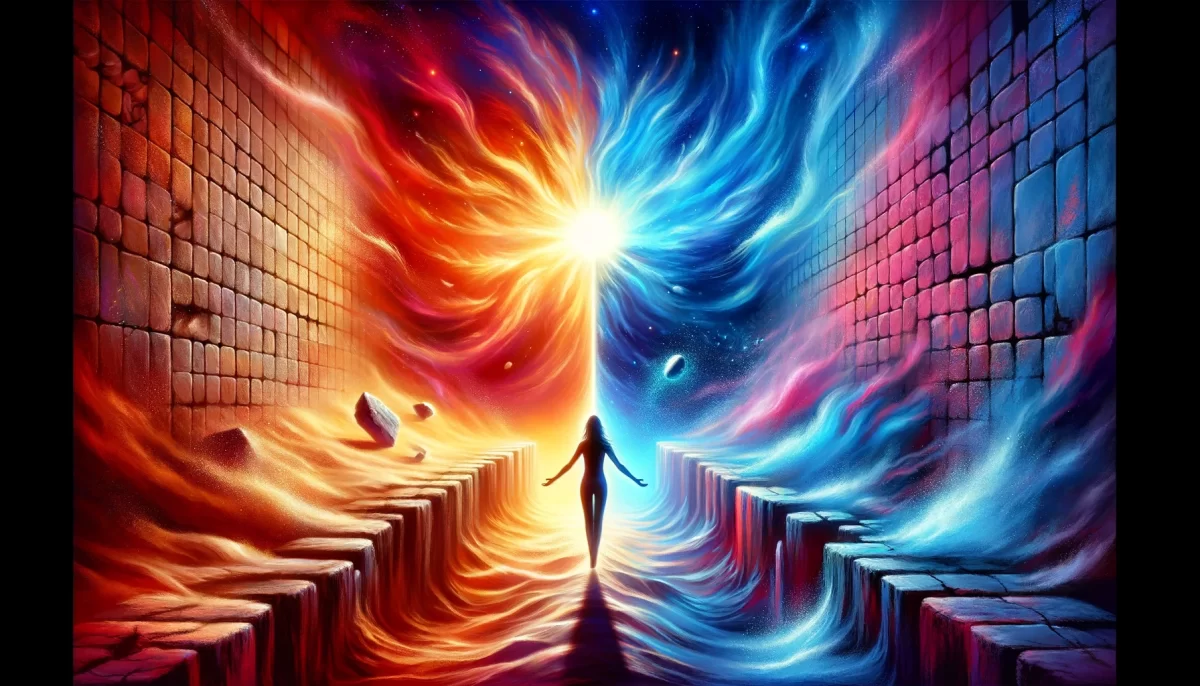
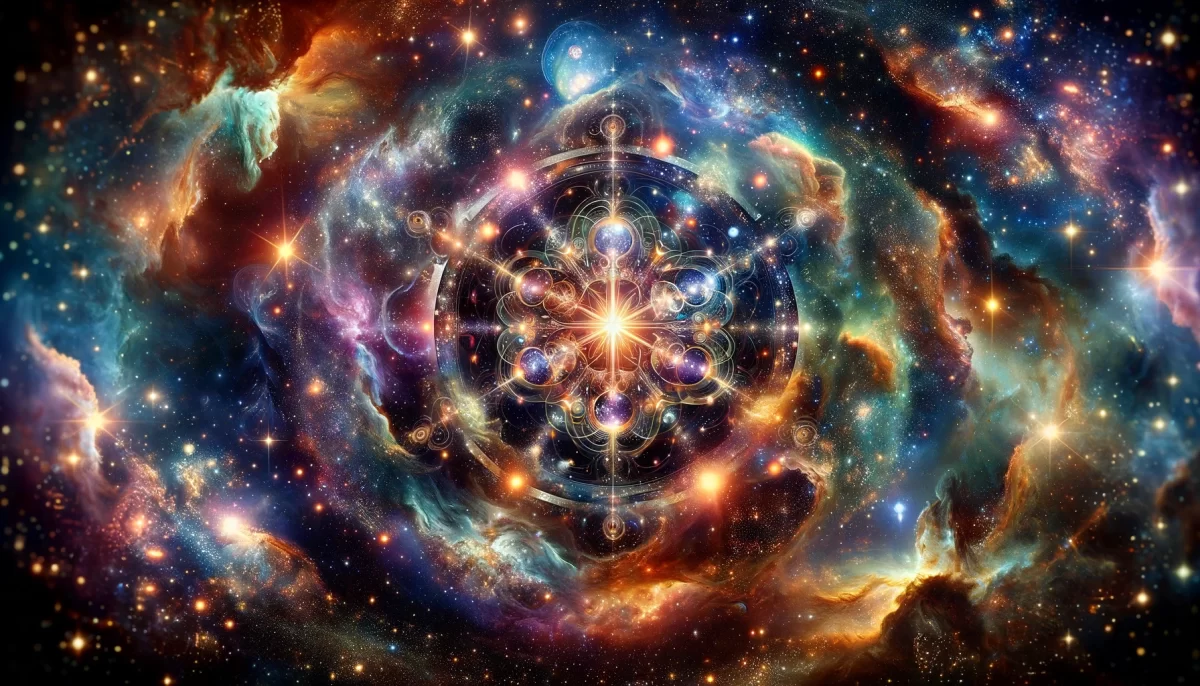
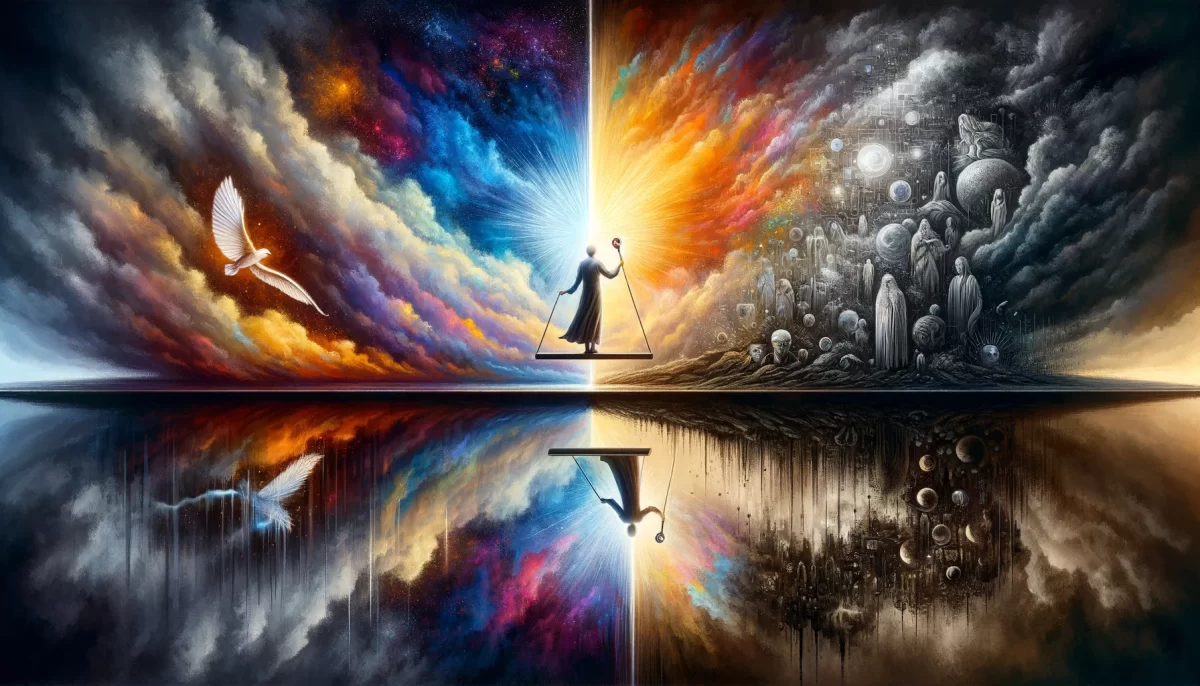

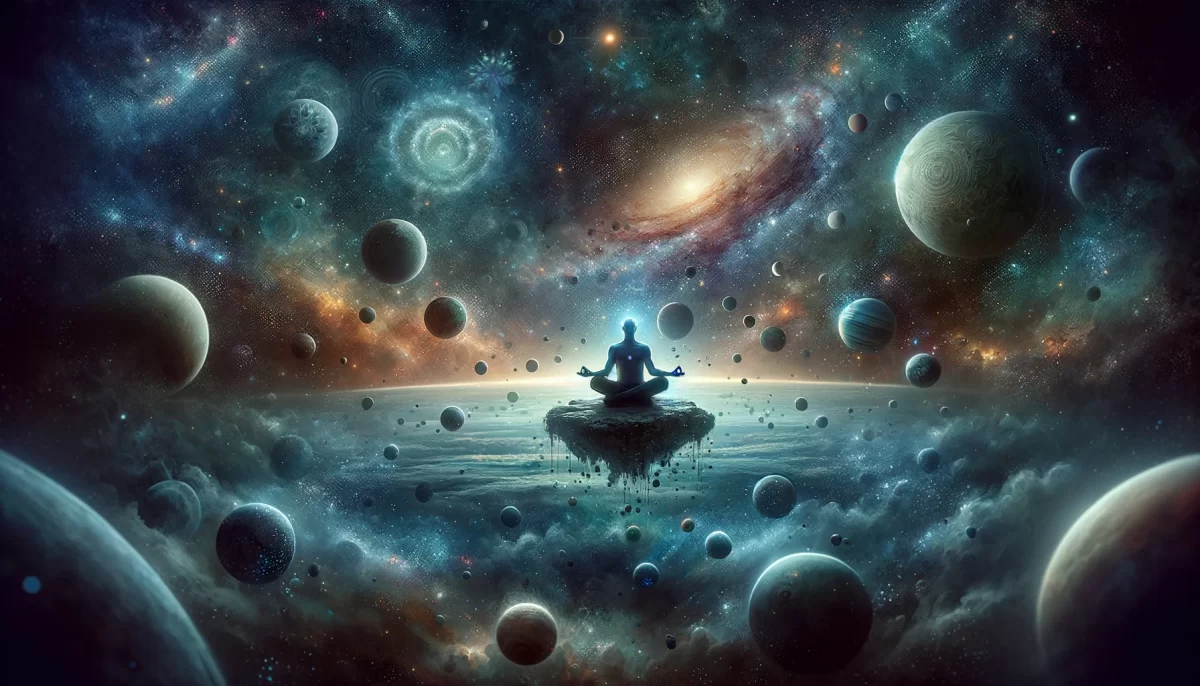
Leave a Reply